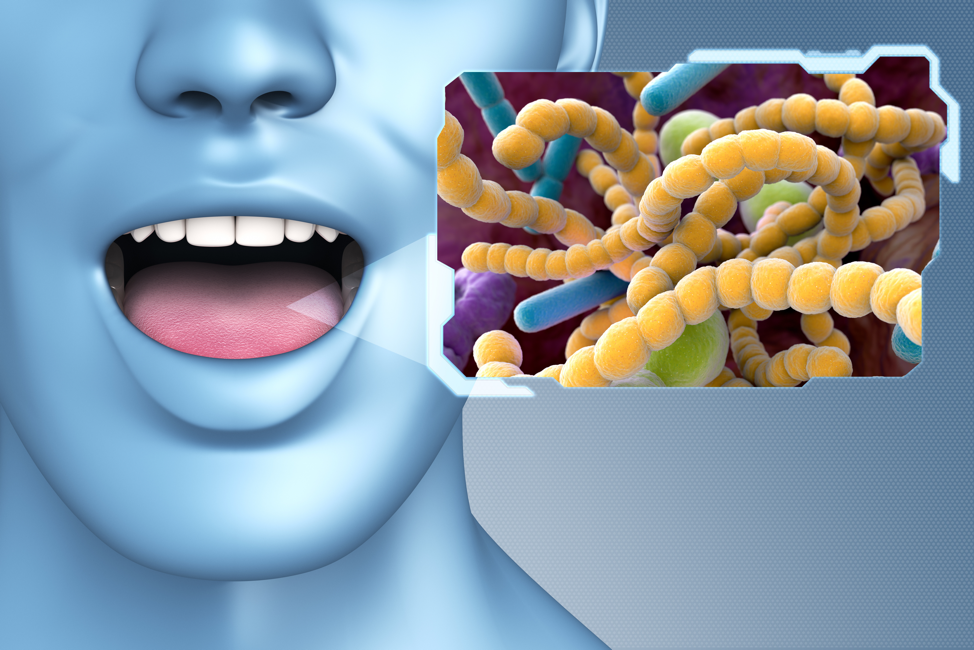
08 Apr Dentistry in Niles: Discussing Halitosis
Most commonly referred to as “bad breath”, halitosis affects roughly 50% to 65% of people. In fact, the condition is so common that—behind tooth and gum decay—It is the third most prevalent reason that people seek dental care.
Interested in learning more about halitosis? Read on! Below, we’re going to discuss both its causes and treatments.
Common Causes of Halitosis:
Halitosis can be caused by a number of different factors. The most common of these factors are:
Food
The most common cause of short-term halitosis is food. Specific foods possess pungent odors that stick with a person after they’ve been consumed. Onions, as you may know, have this effect.
It’s important to note, however, that food can also cause chronic halitosis. This is particularly true for those who practice poor oral hygiene. When food is broken down between the teeth, food particles attract bacteria. This bacteria travels into the bloodstream, and then into the lungs, where it produces halitosis.
Tobacco
One of the most common causes of halitosis is tobacco usage. Smoking, in particular, causes foul odors to build up within the mouth. Typically, the more severe the tobacco usage, the more severe the odor.
Poor Dental Hygiene
Another cause of halitosis is poor dental hygiene. Those who don’t brush and floss on a regular basis will likely experience plaque buildup. This plaque, in turn, produces bacteria that emit a foul smell over time.
Mouth Dryness
Another common cause of halitosis is mouth dryness. The reason that mouth dryness causes halitosis is the lack of saliva.
Saliva acts as a cleansing agent, and when it’s not around, is not able to wash away odorous bacteria and food particles. In other words, when saliva is not present, halitosis may arise.
Specific Diseases
Some medical conditions go hand-in-hand with halitosis. These conditions include some types of cancer, inflammation, GERD, and acid reflux, to name just a few.
Treatments for Halitosis:
There are several components to treating halitosis. Those solutions include the following.
Practicing Good Oral Hygiene
The most important aspect of halitosis treatment is practicing good oral hygiene. In order to rid your mouth of odorous bacteria, you must brush and floss your teeth on a regular basis. It’s also a good idea to brush your tongue and rinse with an alcohol-free mouthwash as well.
Ideally, you will brush and floss after every meal. However, if you aren’t able to do so, you should, at the very least, make sure that you brush and floss twice a day.
Avoiding Odorous Foods
Another component of treating halitosis is to avoid eating odorous foods. The less you consume strong-smelling foods such as onions, spices, and alcohol, the less you’ll have to deal with bad breath. If you do consume a smelly food, you should brush your teeth directly after finishing.
Scheduling Regular Dental Appointments
If you deal with chronic halitosis, it’s vital that you schedule regular dental appointments. By seeing your dentist twice a year, you are able to keep tabs on the state of your oral health and any potential causes of halitosis.
A thorough teeth cleaning can also be helpful in eliminating lingering odors. This is especially true if your bad breath is caused by excessive plaque buildup.
Schedule a Dentist Appointment in Niles
Do you deal with halitosis? Looking to schedule a dentist appointment in Niles ? If so, the dental professionals with Dental Innovations are the people to see.
Lead by Dr. Thomas E. Murray, we do everything we can to make our patients feel comfortable and welcome at our practice. We look forward to seeing you.
Schedule an appointment with Dr. Murray today!


